10 Best Herbal Capsules For High Cholesterol
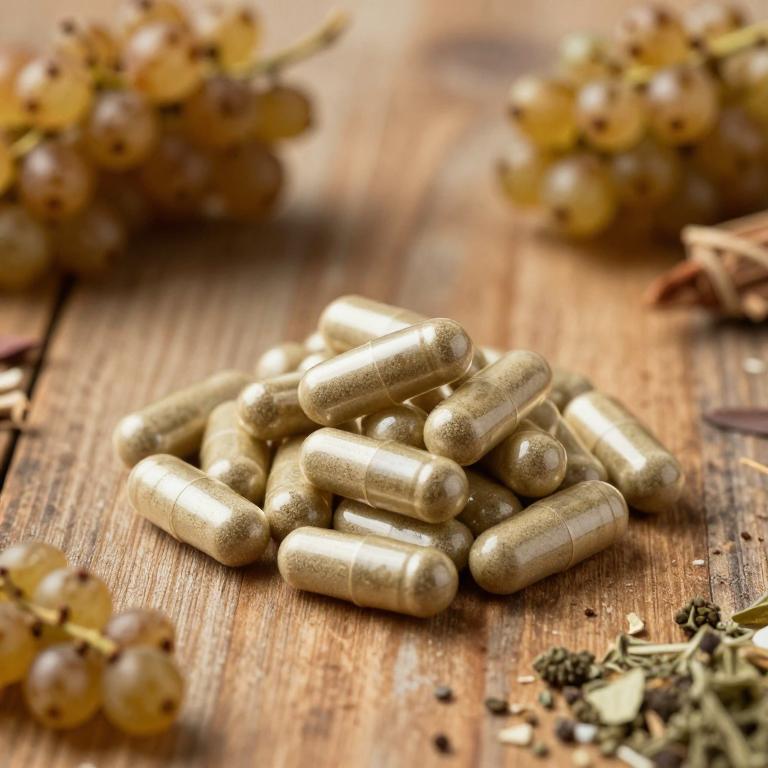
Herbal capsules for high cholesterol are dietary supplements that contain plant-based ingredients aimed at supporting healthy cholesterol levels.
Common herbs used in these capsules include garlic, psyllium husk, green tea extract, and fenugreek, which are believed to help reduce low-density lipoprotein (LDL) cholesterol, often referred to as "bad" cholesterol. These natural remedies may work by improving digestion, increasing bile production, or reducing the absorption of cholesterol in the intestines. While some studies suggest they can have a modest effect on cholesterol levels, they should not replace prescribed medications without consulting a healthcare provider.
It is important to choose high-quality products and be aware of potential interactions with other medications or health conditions.
Table of Contents
- 1. Common grape (Vitis vinifera)
- 2. Ginger (Zingiber officinale)
- 3. Garlic (Allium sativum)
- 4. Salvia (Salvia officinalis)
- 5. Thistle (Silybum marianum)
- 6. Sea buckthorn (Hippophae rhamnoides)
- 7. Blessed thistle (Cnicus benedictus)
- 8. Gurmar (Gymnema sylvestre)
- 9. Bael tree (Aegle marmelos)
- 10. Licorice (Glycyrrhiza glabra)
1. Common grape (Vitis vinifera)

Vitis vinifera herbal capsules, derived from the grapevine plant, are increasingly being explored for their potential benefits in managing high cholesterol levels.
These capsules contain resveratrol, a polyphenolic compound known for its antioxidant and anti-inflammatory properties. Some studies suggest that resveratrol may help reduce low-density lipoprotein (LDL) cholesterol, often referred to as "bad" cholesterol, while also supporting overall cardiovascular health. However, it is important to note that while preliminary research is promising, more extensive clinical trials are needed to confirm their efficacy and safety for long-term use.
As with any supplement, individuals should consult with a healthcare professional before incorporating Vitis vinifera capsules into their regimen, especially if they are on medication for cholesterol management.
2. Ginger (Zingiber officinale)

Zingiber officinale, commonly known as ginger, has been traditionally used for its potential health benefits, including support for cardiovascular health.
Herbal capsules containing zingiber officinale may help in managing high cholesterol levels by promoting healthy lipid metabolism and reducing oxidative stress. Some studies suggest that ginger can lower low-density lipoprotein (LDL) cholesterol, often referred to as "bad" cholesterol, while maintaining or improving high-density lipoprotein (HDL) cholesterol levels. These capsules are typically made from standardized extracts of fresh or dried ginger root and are often used as a complementary therapy alongside a balanced diet and exercise.
However, it is important to consult with a healthcare provider before using ginger supplements, especially for individuals with existing health conditions or those taking medications.
3. Garlic (Allium sativum)
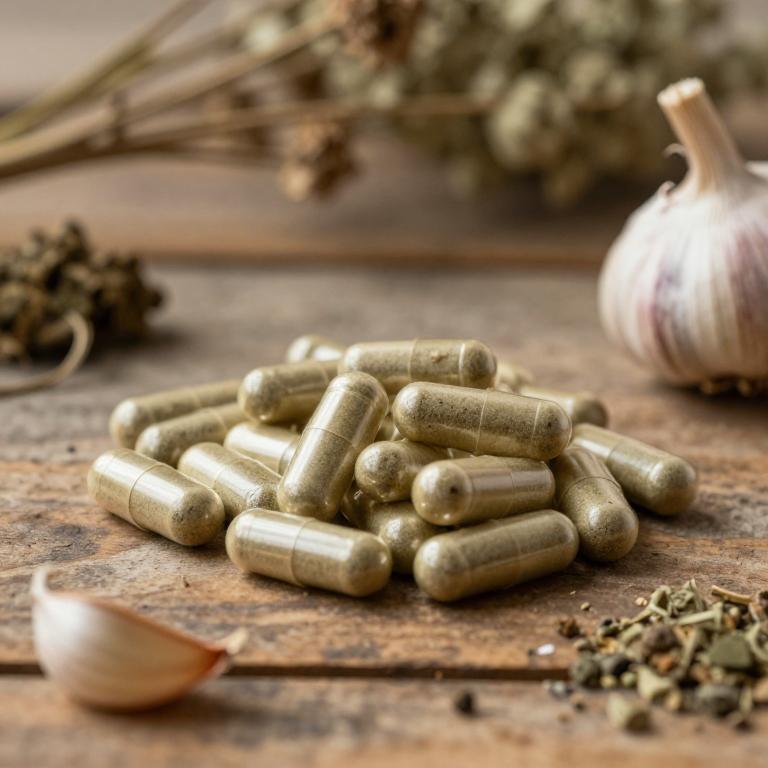
Allium sativum, commonly known as garlic, has been widely studied for its potential benefits in managing high cholesterol levels.
Herbal capsules containing garlic extract are often used as a natural supplement to support cardiovascular health by helping to lower low-density lipoprotein (LDL) cholesterol, often referred to as "bad" cholesterol. These capsules may work by inhibiting the enzymes involved in cholesterol synthesis and improving the function of blood vessels. Some research suggests that regular consumption of garlic supplements can lead to modest reductions in total cholesterol and triglycerides.
However, it is important to consult with a healthcare provider before starting any supplement regimen, as individual responses can vary and interactions with medications may occur.
4. Salvia (Salvia officinalis)
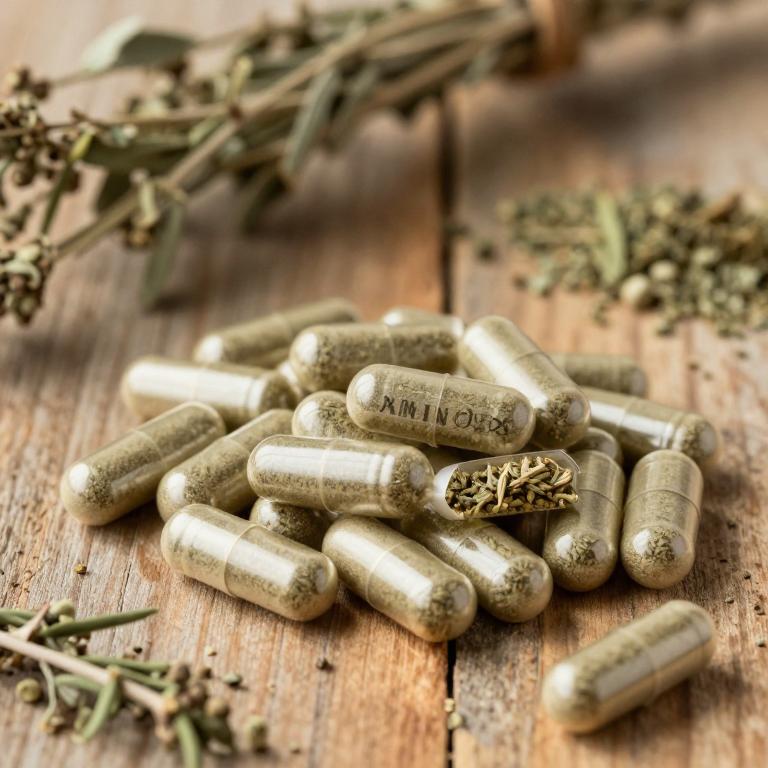
Salvia officinalis, commonly known as sage, has been studied for its potential benefits in managing high cholesterol levels.
Herbal capsules containing salvia officinalis are often marketed as natural supplements that may support cardiovascular health by helping to lower LDL cholesterol, often referred to as "bad" cholesterol. These capsules typically contain standardized extracts of the plant, which are believed to contain bioactive compounds such as flavonoids and phenolic acids. Some research suggests that sage may help improve lipid profiles by enhancing the body's ability to metabolize fats.
However, while preliminary studies show promise, more extensive clinical trials are needed to fully understand its efficacy and safety for cholesterol management.
5. Thistle (Silybum marianum)

Silybum marianum, also known as milk thistle, is a herbal remedy that has been studied for its potential benefits in managing high cholesterol.
The active compounds in silybum marianum, particularly silymarin, are believed to support liver function, which plays a crucial role in cholesterol metabolism. Some research suggests that silymarin may help reduce low-density lipoprotein (LDL) cholesterol levels and increase high-density lipoprotein (HDL) cholesterol, promoting a healthier lipid profile. However, while preliminary studies show promise, more extensive clinical trials are needed to confirm its effectiveness and safety for long-term use.
As with any supplement, it is advisable to consult a healthcare professional before incorporating silybum marianum into a cholesterol management plan.
6. Sea buckthorn (Hippophae rhamnoides)
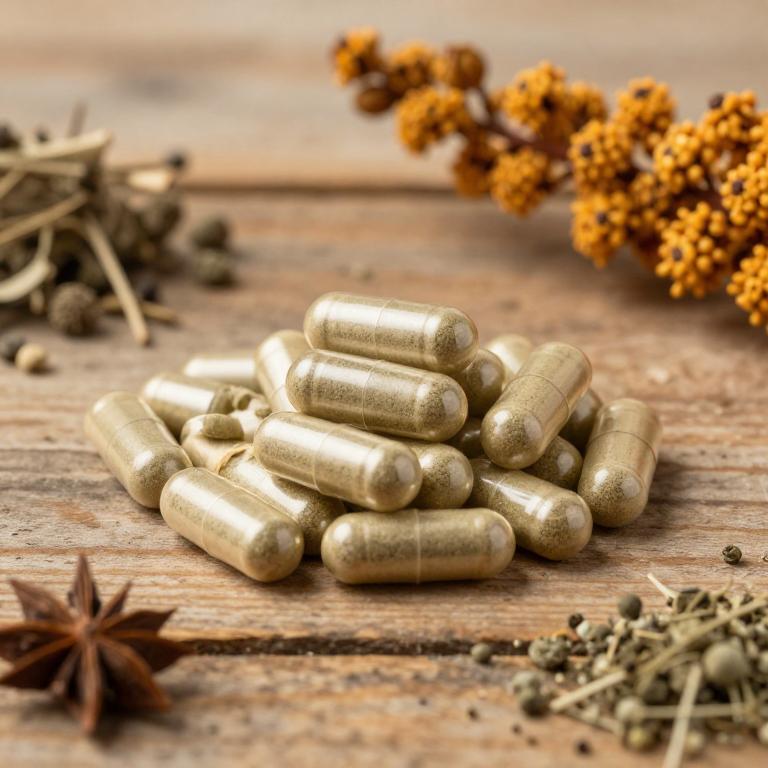
Hippophae rhamnoides, commonly known as sea buckthorn, is a shrub whose berries and extracts are used in herbal supplements to support cardiovascular health.
Herbal capsules containing Hippophae rhamnoides are often marketed for their potential to help lower high cholesterol levels due to their high content of antioxidants, omega fatty acids, and vitamins. These capsules may help reduce low-density lipoprotein (LDL) cholesterol, often referred to as "bad" cholesterol, while supporting overall heart health. However, it is important to consult with a healthcare provider before using these supplements, as they may interact with other medications or have side effects in certain individuals.
While some studies suggest potential benefits, more research is needed to fully understand their efficacy and safety in managing high cholesterol.
7. Blessed thistle (Cnicus benedictus)
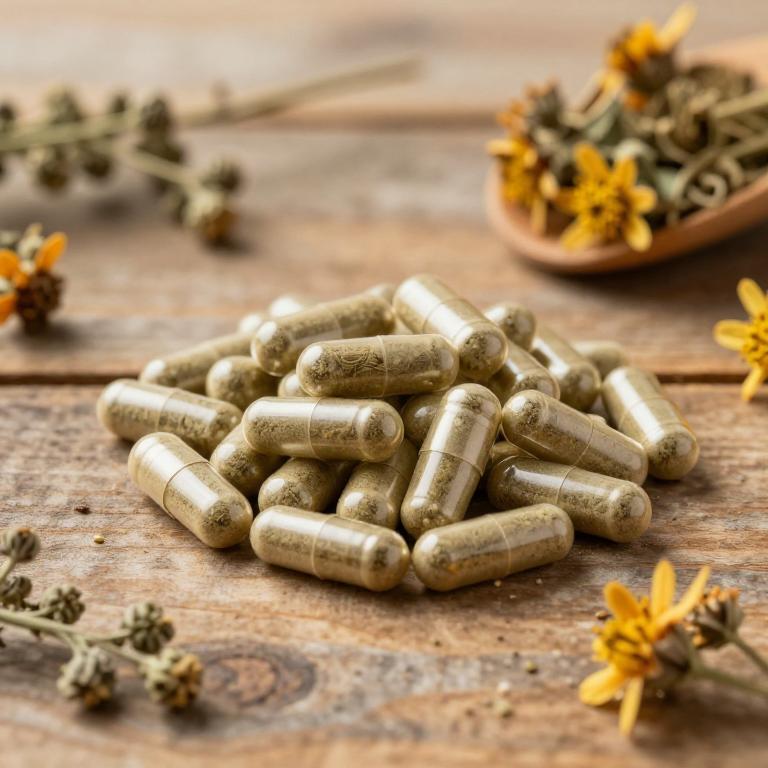
Cnicus benedictus, also known as blessed thorn, is a herbal remedy that has been traditionally used for its potential cardiovascular benefits.
Herbal capsules containing Cnicus benedictus are marketed as natural supplements to help manage high cholesterol levels by supporting healthy lipid metabolism. Some studies suggest that the plant may help reduce low-density lipoprotein (LDL) cholesterol, often referred to as "bad" cholesterol, while promoting the production of high-density lipoprotein (HDL) cholesterol. However, scientific evidence supporting its efficacy for cholesterol management is limited, and more research is needed to confirm its benefits.
As with any supplement, it is advisable to consult a healthcare professional before incorporating Cnicus benedictus capsules into a cholesterol management regimen.
8. Gurmar (Gymnema sylvestre)
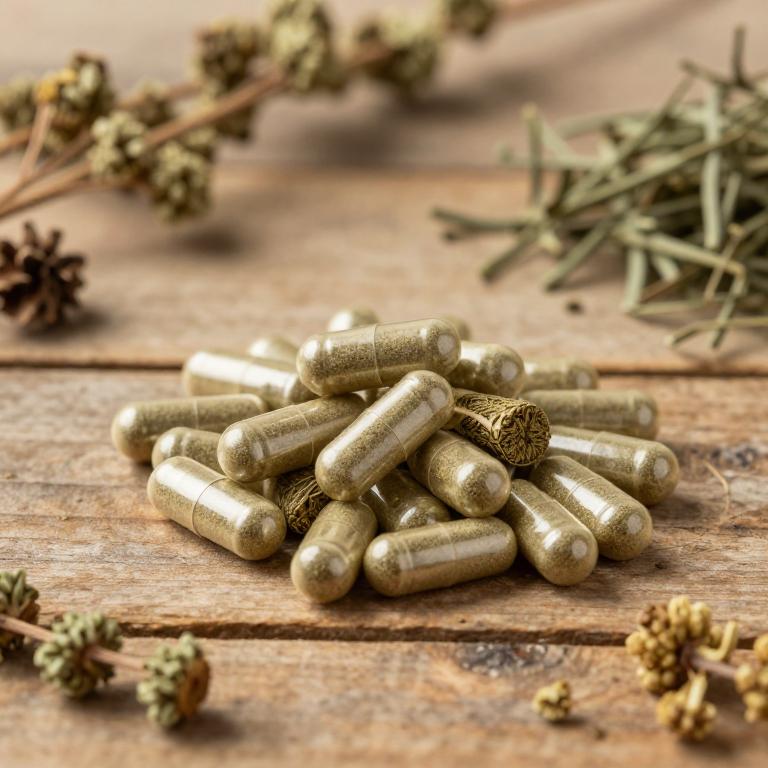
Gymnema sylvestre herbal capsules are a natural supplement derived from the leaves of the Gymnema sylvestre plant, which has been traditionally used in Ayurvedic medicine for its potential health benefits.
These capsules are often marketed for their ability to support healthy cholesterol levels by helping to reduce low-density lipoprotein (LDL), commonly known as "bad" cholesterol. The active compounds in Gymnema sylvestre, such as gymnemic acids, are believed to inhibit the absorption of sugars and fats in the intestines, which may contribute to improved lipid profiles. While some studies suggest that Gymnema sylvestre may have beneficial effects on cholesterol, more research is needed to fully understand its efficacy and safety.
As with any supplement, it is important to consult with a healthcare professional before starting Gymnema sylvestre, especially if you have existing health conditions or are taking other medications.
9. Bael tree (Aegle marmelos)
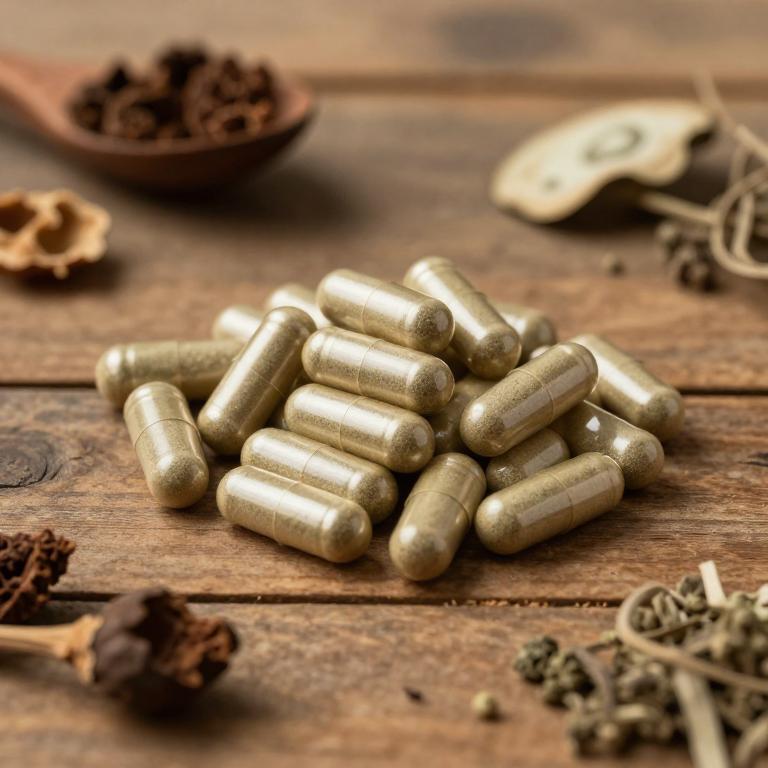
Aegle Marmelos herbal capsules are a natural supplement derived from the bark of the Aegle Marmelos tree, commonly known as the Indian Bael tree.
These capsules are traditionally used in Ayurvedic medicine for their potential cardiovascular benefits, including supporting healthy cholesterol levels. The active compounds in Aegle Marmelos, such as flavonoids and tannins, are believed to help reduce low-density lipoprotein (LDL), often referred to as "bad" cholesterol, while promoting the production of high-density lipoprotein (HDL), or "good" cholesterol. As a herbal remedy, Aegle Marmelos capsules are often recommended as a complementary approach to a balanced diet and regular exercise for managing cholesterol levels.
However, it is important to consult with a healthcare professional before starting any new supplement regimen, especially for individuals with pre-existing medical conditions or those taking other medications.
10. Licorice (Glycyrrhiza glabra)

Glycyrrhiza glabra, commonly known as licorice root, has been traditionally used in herbal medicine for its potential health benefits, including supporting cardiovascular health.
Some studies suggest that licorice root may help reduce cholesterol levels by influencing lipid metabolism and reducing inflammation in the body. However, it is important to note that the evidence for its effectiveness in lowering cholesterol is limited and more research is needed to confirm these findings. When considering licorice root capsules for high cholesterol, it is advisable to consult a healthcare professional, as it can interact with certain medications and may have side effects, especially with long-term use.
As with any herbal supplement, quality and proper dosage are crucial for safety and efficacy.